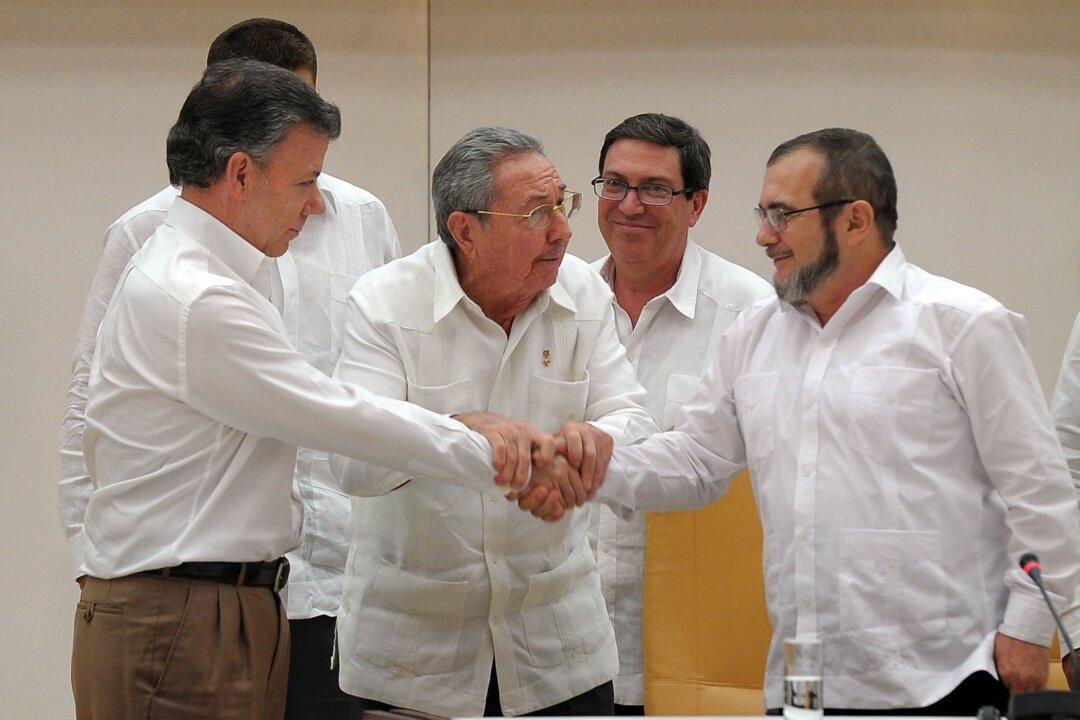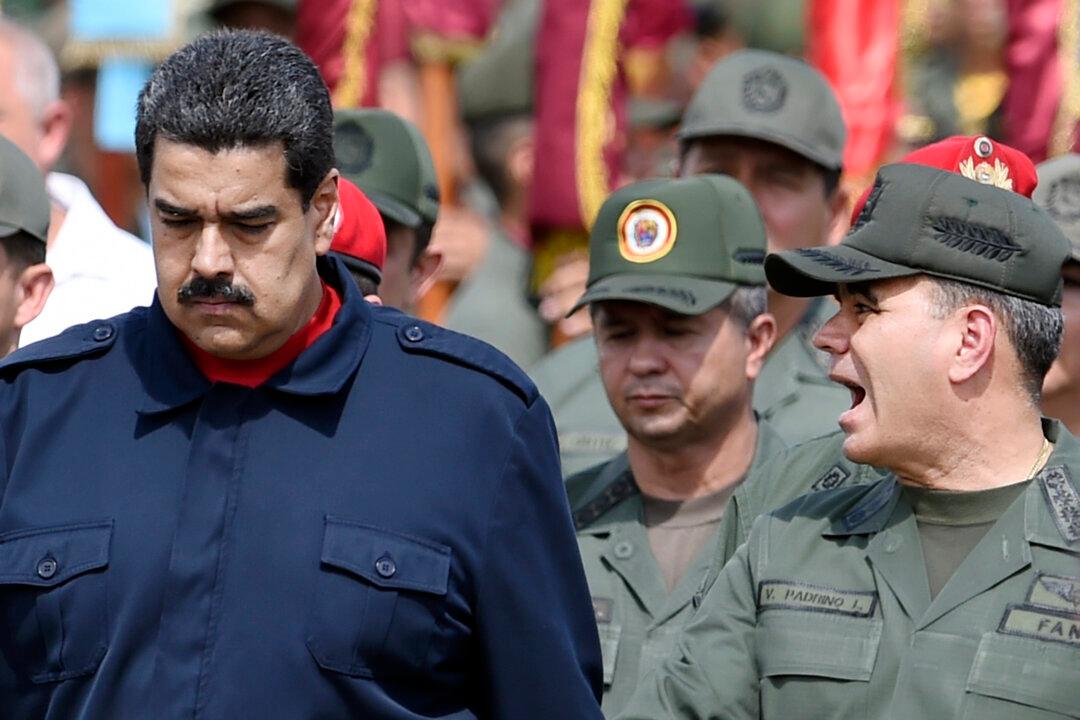It has now been a little more than three years of lies, secret deals, and broken promises since the so-called peace process between the Colombian government and the Revolutionary Armed Forces of Colombia (FARC) started in Havana, Cuba.
It culminated on Sept. 23, when Colombian President Juan Manuel Santos and Comrade Timoleón Jiménez (aka Timochenko)—the head of the FARC guerrilla—announced the agreement that would end the conflict. They shook hands as friends under the smiles and applause of the dictator Raúl Castro and a few select guests.
All throughout the “peace” process, the FARC narcoterrorists have not fulfilled a single promise.
They murdered police and military officers, engaged in acts of terrorism, kidnapped innocents, recruited minors to serve as cannon fodder, and even conducted attacks on the capital of Bogotá. Santos took no repressive action and continued the charade as if nothing had occurred. This is because the narcoterrorists are the ones who have commanded and given orders in this ill-fated “peace” process.
Last year, Santos announced that he would expand the definition of “political offenses” to include drug trafficking. This allowed the FARC to claim in its favor—as they already did—that they are not drug traffickers but “political actors.” The population reacted vehemently and Santos denied he had made the proposal. But evidence was documented in newspapers and video footage.
This was one of the arrangements Santos made with the FARC, along with an agreement that he would protect the group’s guerrilla leaders from extradition to the United States.
To go around what is stated in the constitution, Santos proposed—like former Venezuelan leader Hugo Chávez and his successor Nicolás Maduro—that Congress pass a law allowing him to rule by decree for a period of six months. This way, he could dictate the implementation of the agreement without opposition from Parliament, the courts, and the people, and even without complaint or interference from the International Criminal Court.

